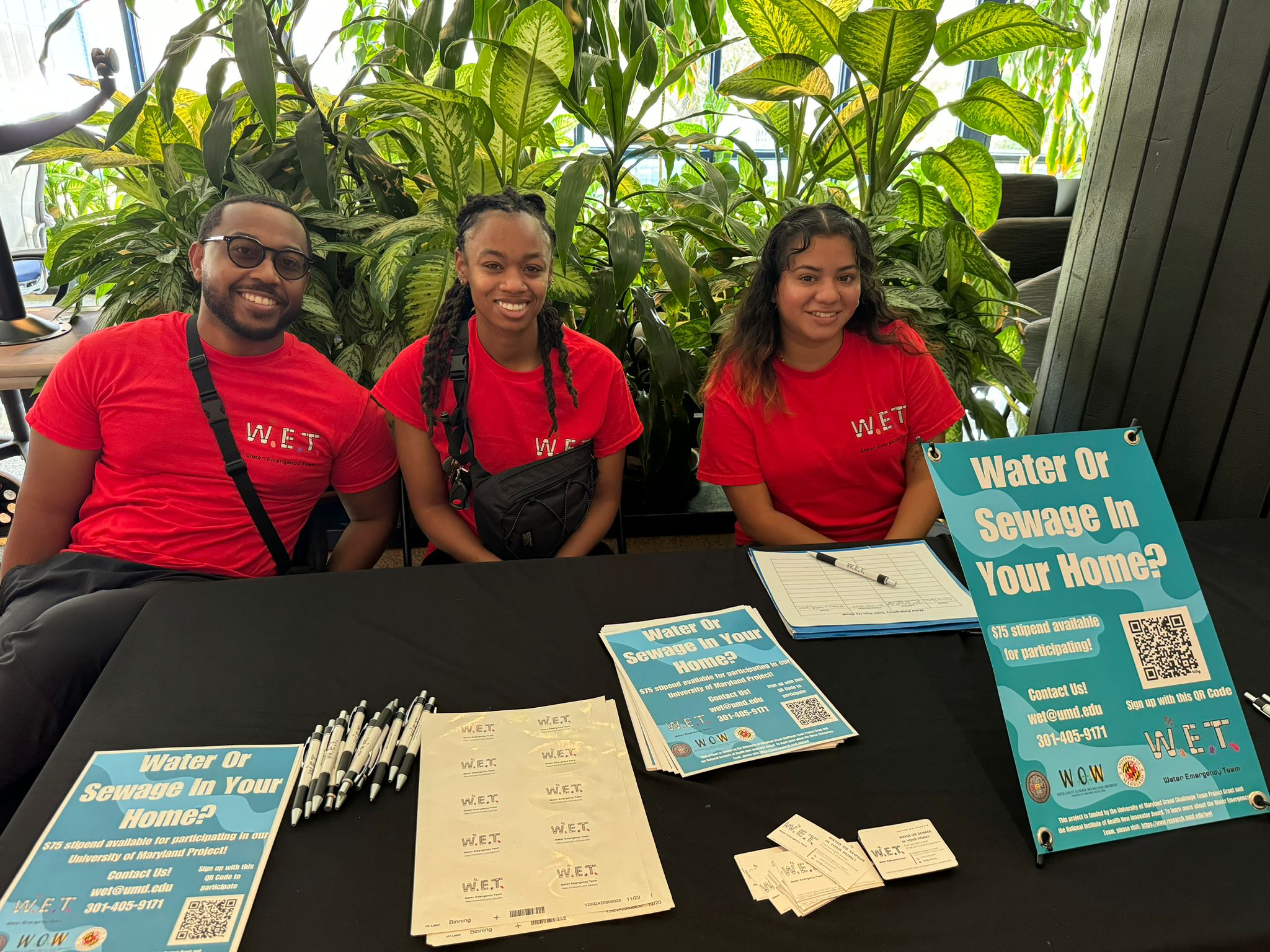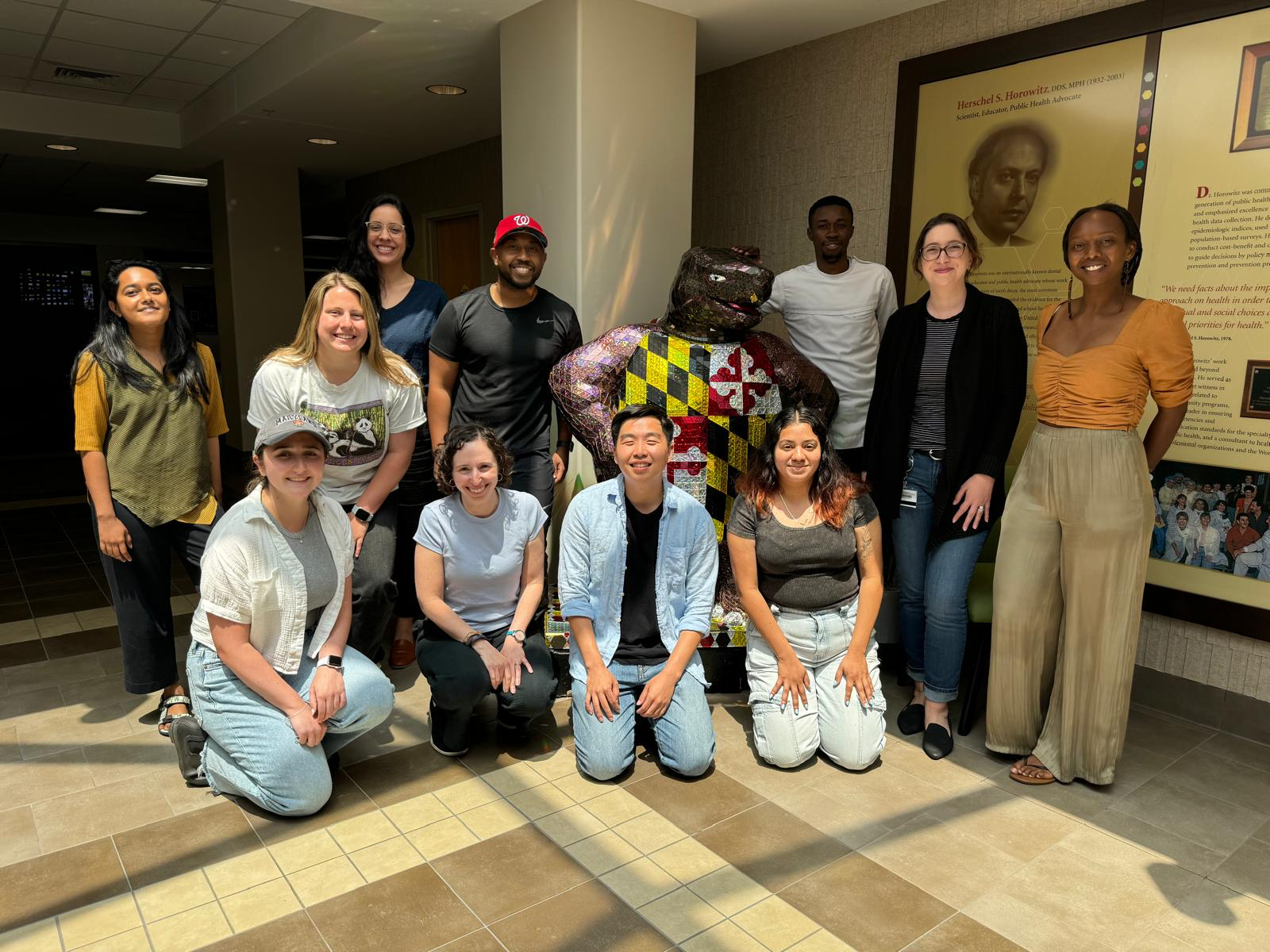Dr. Rachel Rosenberg Goldstein (School of Public Health) and Dr. Marccus Hendricks (School of Architecture, Planning and Preservation), Principal Investigators of the Water Emergency Team (WET) Grand Challenges project grant at the University of Maryland, have made important strides in their team’s research and community outreach efforts to evaluate the public health impacts of sanitary sewer overflows (SSOs) and household sewage backups in underserved neighborhoods in Baltimore, Md., and surrounding areas.
Since receiving the Grand Challenges funding, the WET team has collected over 100 samples from impacted homes, attended 23 community events, and interacted with over 1,000 community members. Three manuscripts based on the initial sampling results, study design, household survey analysis, and the overall project are currently under review.
 Several members of the WET team will travel to the University of North Carolina, Chapel Hill Water & Health Conference in October 2024 to present four posters highlighting project results to date. The team will participate in the Montgomery County Hispanic Heritage Fair and Festival on October 6 and the Latino Block Party on October 12 to engage Prince George’s County residents.
Several members of the WET team will travel to the University of North Carolina, Chapel Hill Water & Health Conference in October 2024 to present four posters highlighting project results to date. The team will participate in the Montgomery County Hispanic Heritage Fair and Festival on October 6 and the Latino Block Party on October 12 to engage Prince George’s County residents.
Dr. Goldstein was awarded a Director’s New Innovator Award from the National Institutes of Health (NIH) to support and expand WET research on the presence of antibiotic-resistant bacteria in sewage. Dr. Goldstein also received a 2023-2024 Research and Development (Advanced Career) Award from the School of Public Health in May 2024.
Dr. Hendricks received the first-ever Provost’s Do Good Award this past April, recognizing members of our campus community who create, nurture, expand, and amplify social impact through education,  programs, and research, both inside and outside the classroom. He was chosen specifically for his substantial social and environmental impact, including launching and piloting the work that led to this Grand Challenge Grant supported project.
programs, and research, both inside and outside the classroom. He was chosen specifically for his substantial social and environmental impact, including launching and piloting the work that led to this Grand Challenge Grant supported project.
Through these efforts, WET continues to advance scientific understanding of the health impacts of failing infrastructure while fostering community resilience. Their work is bringing national visibility to these urgent planning and public health concerns and establishing partnerships that drive real change.
For more information about WET, visit: https://research.umd.edu/wet
